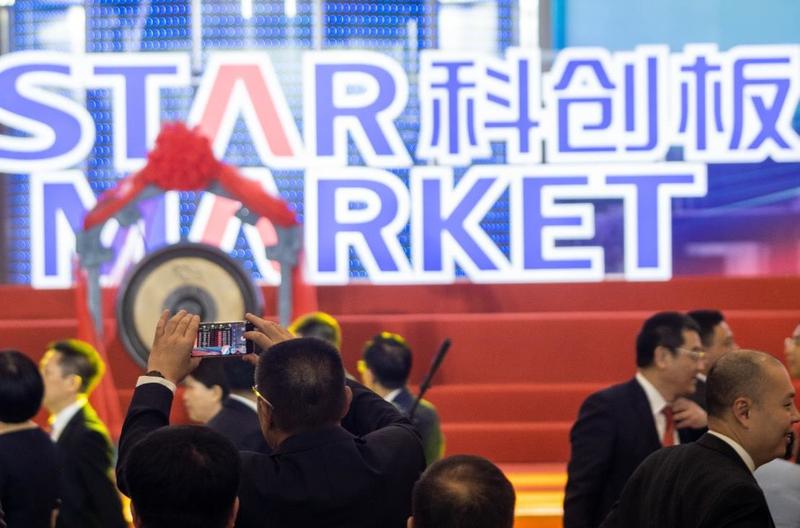 In this undated file photo, an attendee takes a snapshot at the launch ceremony of the STAR Market in Shanghai. (PHOTO BY WU JUN / FOR CHINA DAILY)
In this undated file photo, an attendee takes a snapshot at the launch ceremony of the STAR Market in Shanghai. (PHOTO BY WU JUN / FOR CHINA DAILY)
Inclusion of STAR Market stocks in the Shanghai-Hong Kong stock connect program will help further improve the trading environment and spur the country's capital market opening-up, said experts.
Twelve companies listed on the technology-heavy STAR Market on the Shanghai Stock Exchange have been included in the stock connect program from Monday.
In a break with the past, global institutional investors can now invest in these companies from Hong Kong through the stock connect program. Prior to this, foreign investors could buy STAR Market shares only through the qualified foreign institutional investor channel by obtaining a license from the China Securities Regulatory Commission.
Inclusion of STAR Market stocks indicates that more international capital will be attracted via the connect programs, which will make the A-share market valuation and investment style more professional and institutionalized and, as a result, value shares and growth enterprises will lead the market surge in turns, said Fu Lichun, founding partner of Beijing-based YTI Capital
Data from GF Securities showed that the average market value of the 12 companies amounted to 51 billion yuan (US$7.9 billion). Over the past 12 months, the daily trading value came in at 378 million yuan, which was higher than the 247 million yuan average number of the 200-plus STAR Market companies.
The Shanghai bourse said in an announcement on Jan 22 that the inclusion of STAR Market stocks in the stock connect programs will provide more investment avenues for overseas investors. It will also introduce more institutional investors into the STAR Market, which will further optimize the investor structure and accelerate the internationalization of China's capital market.
The Shanghai, Shenzhen and Hong Kong bourses had reached a consensus on Nov 27 for expanding the scope of their stock connect programs by adding qualified STAR Market stocks.
According to analysts from China International Capital Corp Ltd, the expansion of the stock connect program will be a dynamic process, as more flexible inclusion rules and trading mechanism can be expected to include more new economy companies.
Inclusion of STAR Market stocks indicates that more international capital will be attracted via the connect programs, which will make the A-share market valuation and investment style more professional and institutionalized, said Fu Lichun, founding partner of Beijing-based YTI Capital. As a result, value shares and growth enterprises will lead the market surge in turns, he said.
ALSO READ: STAR market to lift global participation
Fu Ziheng, general manager of the equity fund research center of China Fortune Securities, said the latest inclusion marks the first internationalization step of the technology-focused STAR Market. The board valuation will gradually reach the level seen in mature markets, he said.
The sci-tech innovation focused STAR Market has already gained much attention in the international market.
British stock market index provider FTSE Russell will unveil its semiannual index review results on Feb 19. By then, all eligible shares in the STAR Market will be added to FTSE Russell's global index, which will take effect from the market opening on March 22.
Another major financial service provider MSCI said it will conduct its semiannual review in May by which time eligible STAR Market shares, which are accessible via the Shanghai-Hong Kong stock connect program, will be included in the MSCI China indexes.
Total foreign investment in the STAR Market rose from 270 million yuan at the end of 2019 to 5.64 billion yuan by November 2020, according to China Renaissance Securities.
READ MORE: For small investors, STAR brings opportunities, challenges
The Nasdaq-style STAR Market which started trading in July 2019, has seen 225 floats, raising more than 318 billion yuan from their stock market debuts. Many of the market firsts have been attempted here, including the registration-based initial public offering mechanism and the permission for a dual-class stock structure.


